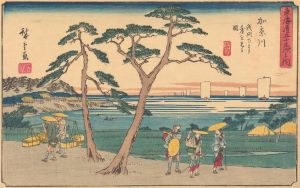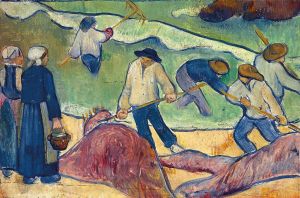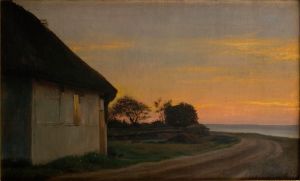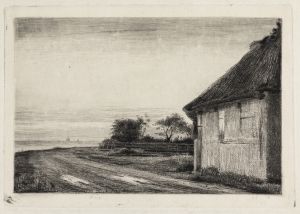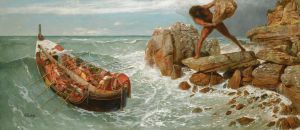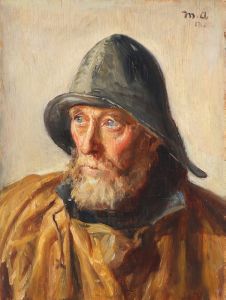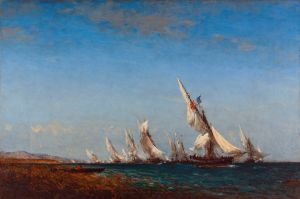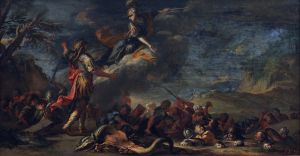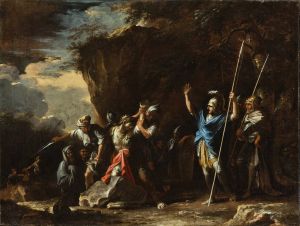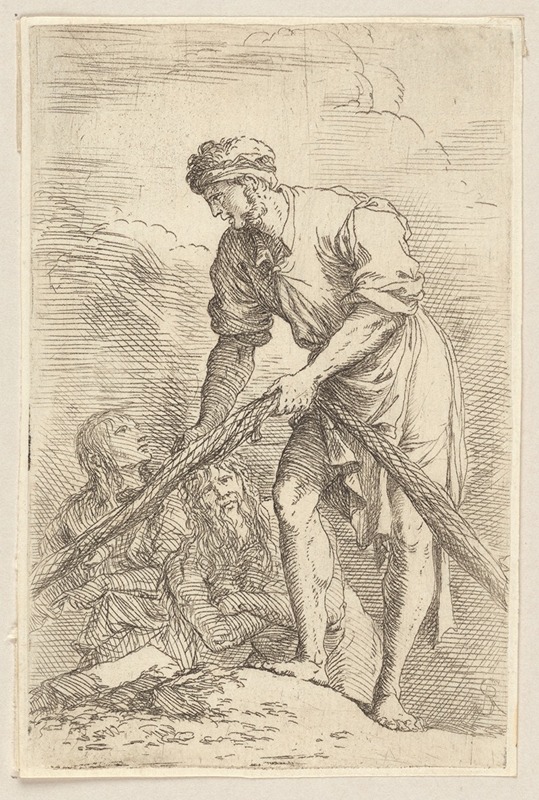
Man with Fishing Net and Two Other Figures
A hand-painted replica of Salvator Rosa’s masterpiece Man with Fishing Net and Two Other Figures, meticulously crafted by professional artists to capture the true essence of the original. Each piece is created with museum-quality canvas and rare mineral pigments, carefully painted by experienced artists with delicate brushstrokes and rich, layered colors to perfectly recreate the texture of the original artwork. Unlike machine-printed reproductions, this hand-painted version brings the painting to life, infused with the artist’s emotions and skill in every stroke. Whether for personal collection or home decoration, it instantly elevates the artistic atmosphere of any space.
Salvator Rosa was an Italian Baroque painter, poet, and printmaker active in Naples, Rome, and Florence. He is best known for his unorthodox and often dramatic landscapes, as well as his satirical and philosophical themes. One of his lesser-known works is "Man with Fishing Net and Two Other Figures." Unfortunately, there is limited information available specifically about this painting, as it is not one of Rosa's most extensively documented works.
Salvator Rosa was born in 1615 in Arenella, near Naples, and was initially trained by his uncle, Paolo Greco, and later by the painter Francesco Francanzano. Rosa's early exposure to the vibrant artistic environment of Naples, which was then under Spanish rule, influenced his development as an artist. He later moved to Rome, where he became associated with a circle of intellectuals and artists who were interested in challenging the conventions of the time.
Rosa's work is characterized by its dramatic intensity and often features themes of nature's power and the folly of human endeavors. His landscapes are known for their rugged and wild qualities, often populated by bandits, soldiers, and peasants, reflecting his interest in the more tumultuous aspects of life.
"Man with Fishing Net and Two Other Figures" likely fits within Rosa's broader oeuvre, which often depicted scenes of everyday life infused with a sense of drama and narrative. While specific details about this painting are scarce, it can be inferred that the work might include elements typical of Rosa's style, such as a dynamic composition and a focus on the human figure within a natural setting.
Rosa's paintings often carry a philosophical undertone, reflecting his interest in Stoicism and the transient nature of human life. This intellectual depth is a hallmark of his work, setting him apart from many of his contemporaries. His paintings frequently explore themes of mortality, the passage of time, and the relationship between humanity and nature.
Despite the lack of detailed information about "Man with Fishing Net and Two Other Figures," Rosa's influence on the Baroque period is well-documented. His work was admired for its originality and emotional depth, and he was a significant figure in the development of landscape painting. Rosa's legacy extends beyond his paintings; he was also a noted poet and satirist, using his art and writings to critique the society of his time.
In summary, while specific information about "Man with Fishing Net and Two Other Figures" is limited, it is likely representative of Salvator Rosa's broader artistic themes and style. His work remains influential, celebrated for its dramatic intensity and philosophical depth, and continues to be studied and appreciated for its contribution to Baroque art.





